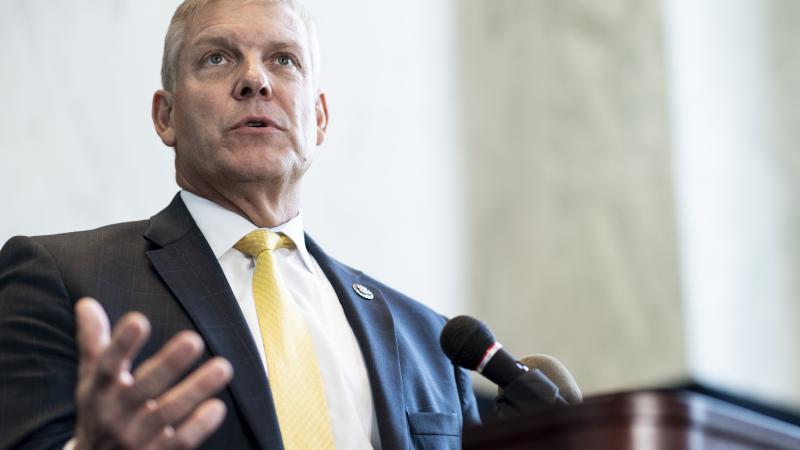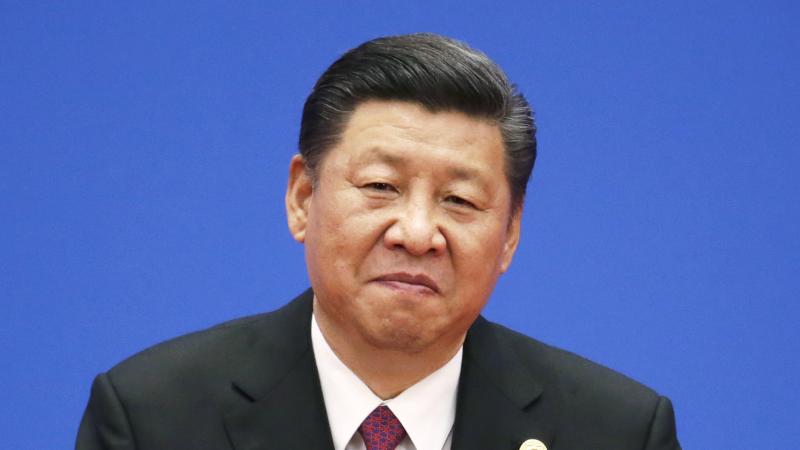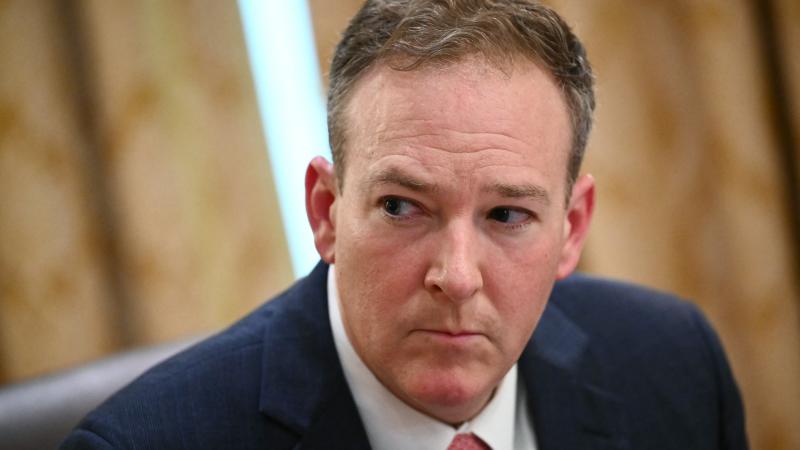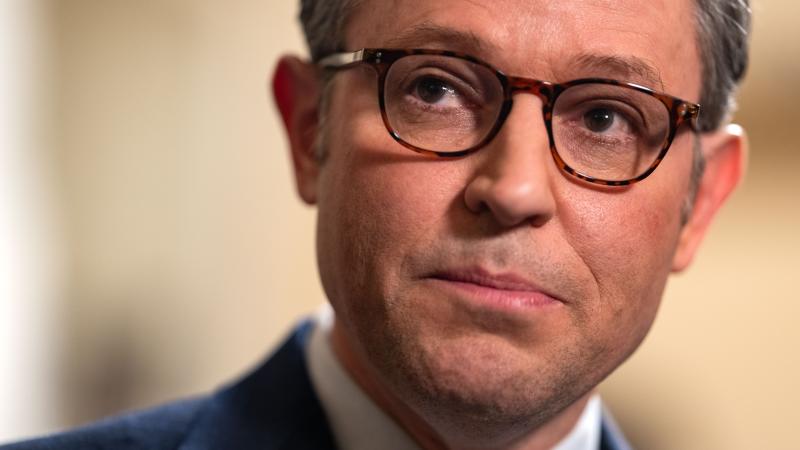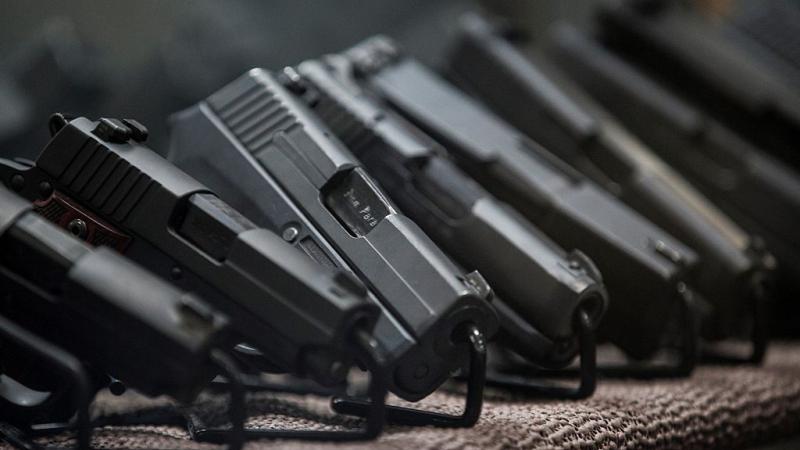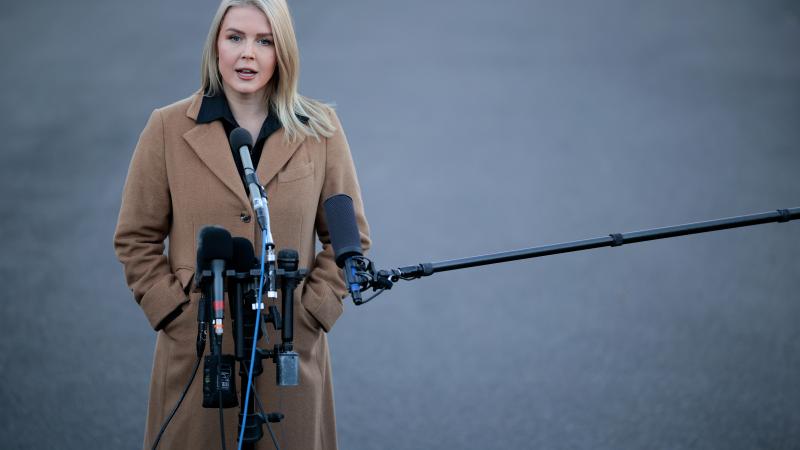What if ... a presidential candidate can't make it across the finish line?
It's a hard subject to talk about — but it's one not far from voters' thoughts. Back in May, a stunning 28% of Democratic voters said Joe Biden will be replaced as ultimate party presidential nominee, according to a Just the News Daily Poll with Scott Rasmussen.
With the two oldest presidential candidates in U.S. history on the ballot in November — including one whose frequent verbal lapses and light campaign schedule have provoked some anxiety about age-related decline — it's probably worth reviewing some what-if scenarios that could be triggered should one of them be unable to cross the finish line.
It's a hard subject to talk about — but it's one not far from voters' thoughts. Back in May, for example, a stunning 28% of Democratic voters said Joe Biden will be replaced as ultimate party presidential nominee, according to a Just the News Daily Poll with Scott Rasmussen.
What, then, if ill health, incapacity or even death were to prevent a candidate from making it to Election Day? Or a president-elect from making it to his inauguration in January?
These are exceedingly unlikely scenarios. "No presidential candidate of a major party has ever died or withdrawn before a presidential election," notes an article posted at teaching history.org, "and no President-elect has ever died or withdrawn after winning the general election, but before taking office."
Then again, this is 2020.
In the current period prior to November 3, technically we are each voting for a slate of electors, not a specific candidate. "So votes would simply be transferred to the party's replacement candidate if a candidate is incapacitated or dies," former U.S. House member Dave Brat told Just the News.
"In the period from Election Day in November to the Electoral College meeting things get more complex as different states have different rules, and the Supreme Court will likely come into play," said Brat, now dean of the Liberty University Business School. "The probability of either of these scenarios is very unlikely, but in the year 2020, it is best to think through every possible scenario ahead of time to ensure that our system of laws is respected and followed by all."
If a health crisis were to prevent the Democratic candidate from making it to the election, "The short answer is that a replacement would be chosen according to DNC [Democratic National Committee] bylaws," Ilya Shapiro, director of Cato Institute's Robert A. Levy Center for Constitutional Studies, told Just the News. "If after the election, there are other rules."
Should a candidate pass away "in October, a number of states would have already started early voting, including Vermont, where early voting begins 45 days before an election," Vermont Public Radio senior political correspondent Bob Kinzel reported in April. "But it's thought that this really wouldn't be a problem, because voters in November are technically voting for a slate of electors, not a specific candidate. So votes for the candidate who died would be transferred to the party's replacement candidate. However, if this happened, let's say, a week before the election, Congress does have the authority to reschedule the election to allow time for a new candidate to be selected."
Sections 3 and 4 of the 25th Amendment to the U.S. Constitution govern how presidential incapacity is handled, while the 20th Amendment covers the death of a president-elect before inauguration.
"If, at the time fixed for the beginning of the term of the President, the President elect shall have died, the Vice President elect shall become President," stipulates the 20th Amendment. "If a President shall not have been chosen before the time fixed for the beginning of his term, or if the President elect shall have failed to qualify, then the Vice President elect shall act as President until a President shall have qualified; and the Congress may by law provide for the case wherein neither a President elect nor a Vice President elect shall have qualified, declaring who shall then act as President, or the manner in which one who is to act shall be selected, and such person shall act accordingly until a President or Vice President shall have qualified."
"[B]ecause voters are choosing electors, incapacity would not require a change in the line-up," said Walter Olson, a senior fellow at the Levy Center. "The Biden/Harris electors remain the Biden/Harris electors, people vote for them, the electors in turn meet, and so long as Biden is well enough to be sworn in, all questions about succession can be resolved after Inauguration Day."
Biden became the presumed nominee following a string of primary victories that led to chief rival Sen. Bernie Sanders dropping out and endorsing Biden — who also has the backing of party leaders Barack Obama, Hillary Clinton and others.
Trepidations about Biden include whether enough of the party's progressive wing will turn out for the so-called "Democratic establishment" candidate, whether he's physically and mentally up for tangling one-on-one with Trump, a sexual assault allegation, and a strangely remote campaign featuring a candidate whose public appearances are strictly rationed, in part because of the coronavirus.
President Trump has repeatedly questioned Biden's mental stamina, with the Trump campaign creating a website called "Barely There Biden" featuring a collection of videos of Biden's gaffes, including one that Trump tweeted out Sunday showing Biden claiming that he entered the U.S. Senate "180 years ago."
Another video Trump shared showed Biden in an MSNBC interview searching for his words to remember a business-lending program in the congressionally-passed coronavirus relief package. Eventually, MSNBC anchor Stephanie Ruhle prompted Biden with the right verbiage.
The Trump campaign also shared an Axios interview with Biden, in which the Democratic candidate said that sometimes "I'll find myself searching for a second" to find the words — but "I've always attributed that to being tired and not to the stutter." Biden has spoken openly about recovering from a childhood stutter.
Neither the Biden nor Trump campaigns responded to requests for comment from Just the News.




